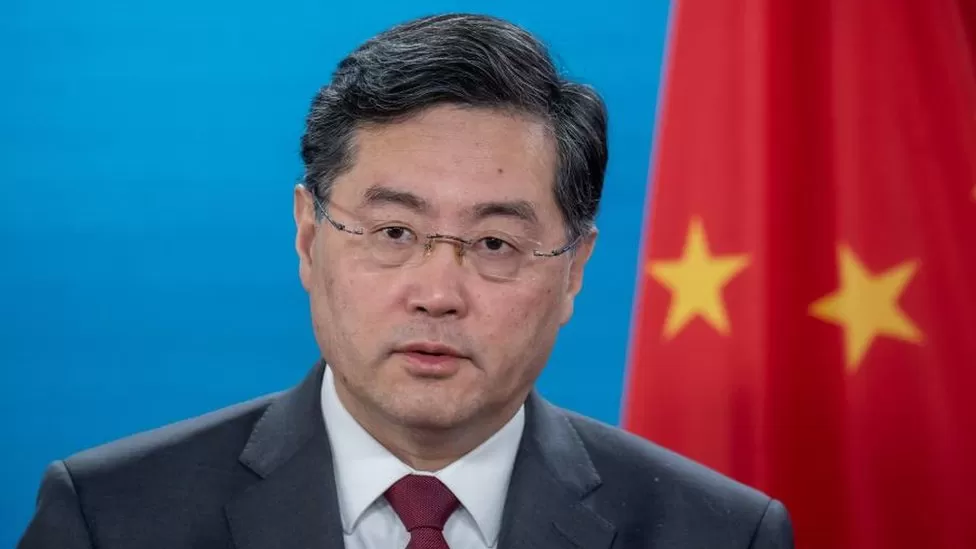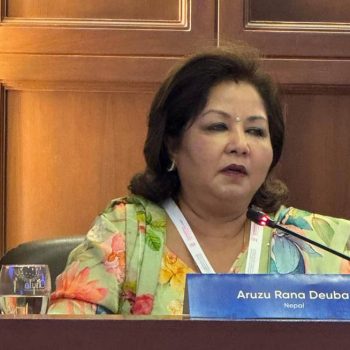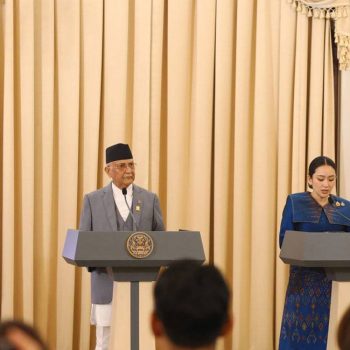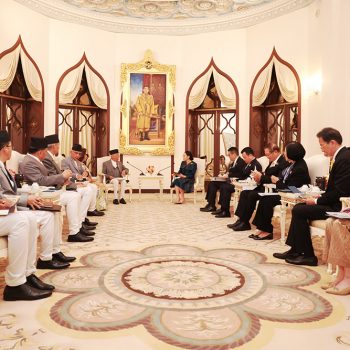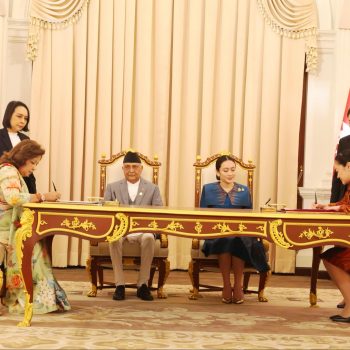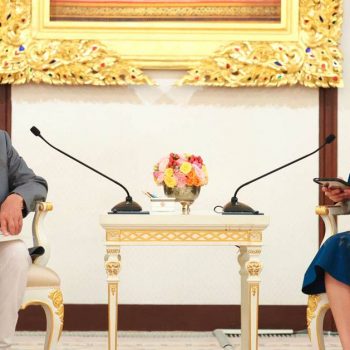Biden-Xi talks: US says opposed to ‘unilateral effort’ to change Taiwan
 NepalPress
NepalPress

US president Joe Biden has told his Chinese counterpart Xi Jinping that the US is strongly opposed to “unilateral efforts” to change the status quo or undermine peace across Taiwan, BBC reported.
The remarks were made during the two leaders’ first virtual summit.
Mr Biden and Mr Xi also discussed other controversial issues like China’s practices in Xinjiang and Hong Kong.
These are the most substantial discussions both leaders have had since Mr Biden took office in January.
Mr Xi, meanwhile, issued a warning to Mr Biden that US support for Taiwanese independence was like “playing with fire…. and those who play with fire will get burned”, according to Chinese state media quoted by Reuters.
The White House said that President Biden “underscored that the United States remains committed to the ‘One China’ policy”.
“[It] strongly opposes unilateral efforts to change the status quo or undermine peace and stability across the Taiwan Strait.”
The One China policy is a cornerstone of Sino-US relations. Under this, the US recognises and has formal ties with China rather than the island of Taiwan, which China sees as a breakaway province to be reunified with the mainland one day.
However, the US also adheres to the Taiwan Relations Act, which states that it must help Taiwan defend itself in the event of an attack.
Mr Biden said last month that the US would defend Taiwan if China were to attack the island, in an apparent departure from a long-held US foreign policy position of “strategic ambiguity” which has seen Washington being deliberately vague about what it would actually do.
What was the mood at the meeting?
The meeting began with both leaders greeting each other warmly, with Mr Xi saying he was happy to see his “old friend” Mr Biden.
For his part, Mr Biden said: “Maybe I should start more formally, although you and I have never been that formal with one another”.
He added that both men had “always communicated with one another very honestly and candidly”, adding “we never walk away wondering what the other man is thinking”.
Mr Xi said the two countries needed to improve “communication” and face challenges “together”.
“Humanity lives in a global village, and we face multiple challenges together. China and the US need to increase communication and cooperation.” said Mr Xi.
“I stand ready to work with you Mr President, to… move China-US relations forward in a positive direction.”
What issues were on the table?
Issues like trade were on the table, with Mr Biden highlighting the “need to protect American workers and industries from the PRC’s unfair trade and economic practices”.
Mr Xi also appeared to have made a strong comment on the issue, with Reuters reporting that he had told Mr Biden that the US needed to stop “abusing the concept of national security to oppress Chinese companies”.
Mr Biden also raised concerns about China’s practices in Xinjiang, Tibet and Hong Kong – though no more detail was given on this.
Issues like the Indo-Pacific region were also discussed, as well as the climate crisis and the role the US and China play in this.
The competing nations surprised many last week by issuing a joint declaration to address climate change, at talks in Glasgow, Scotland.
This was the third time the two leaders have spoken since Mr Biden’s inauguration in January.
Mr Xi has not left China in nearly two years, since the outbreak of the Covid-19 pandemic.
The China-US relationship is crucial to both sides and the wider world, with Beijing repeatedly having called on the new administration in Washington to improve relations which deteriorated under Mr Biden’s predecessor, Donald Trump.
That this meeting has happened at all between the world’s two most powerful leaders tells you that both sides believe that the previous open hostility between Beijing and Washington wasn’t working for either of them and was potentially dangerous.
Their relationship had become so toxic and so dysfunctional that these video discussions have been, in part, to attempt to ensure that competition between China and the US didn’t drift into armed conflict due to a misunderstanding at a global hotspot.
On the one hand, we should probably be pretty happy they they’re steering away from war before it can happen but, on the other, it is quite something that they have felt the need to do so.
In fact, if you see the optics at this conference this is the warmest things have appeared for a long time with Chinese and US leaders.
These efforts to make the discussions cordial with waving, talk of “the global village” and “humanity’s challenges” was a far cry from the meltdown in Alaska this March when senior representatives from both administrations ended up sledging one another in public.
This does appear to be a genuine attempt at a re-set and we should actually expect this to alter global geopolitical relations in a concrete way.







